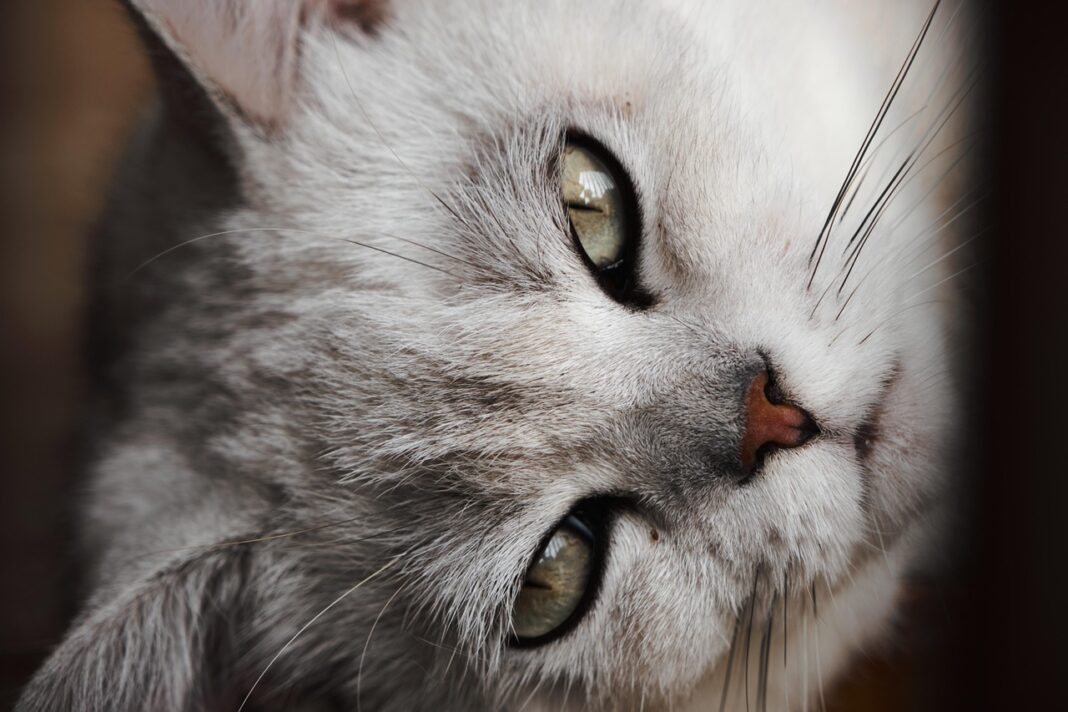Choosing a pet is a big decision, one that impacts your lifestyle for years to come. From cuddly companions to energetic playmates, different breeds offer unique qualities that can perfectly complement your personality and home environment. Understanding the characteristics, needs, and potential challenges of popular pet breeds is crucial for ensuring a happy and harmonious relationship with your new furry, feathered, or scaled friend. Let’s dive into some of the most beloved pet breeds and explore what makes them so popular.
Popular Dog Breeds: Finding the Right Canine Companion
Dogs are arguably the most popular pets globally, and for good reason. Their loyalty, intelligence, and affectionate nature make them wonderful companions. However, different breeds have vastly different needs and temperaments. Choosing the right one for your lifestyle is key.
Labrador Retriever: America’s Favorite
- Temperament: Known for their friendly, outgoing, and eager-to-please personalities. Labs are excellent family dogs and generally get along well with children and other pets.
- Exercise Needs: High. Labs require significant daily exercise to stay healthy and happy. Think long walks, runs, or playtime in a fenced yard.
- Grooming: Moderate. Labs have a double coat that sheds seasonally, requiring regular brushing.
- Health Considerations: Prone to hip and elbow dysplasia, obesity, and certain types of cancer. Responsible breeding practices can minimize these risks.
- Practical Example: A family with young children who enjoys outdoor activities like hiking and swimming would be a great fit for a Labrador Retriever.
French Bulldog: The Charming City Dweller
- Temperament: Affectionate, playful, and adaptable. French Bulldogs are known for their charming personalities and relatively low energy levels.
- Exercise Needs: Moderate. Short walks and playtime are usually sufficient for Frenchies.
- Grooming: Minimal. French Bulldogs have short, smooth coats that require minimal grooming.
- Health Considerations: Brachycephalic (short-nosed) breeds like French Bulldogs are prone to breathing problems, heatstroke, and eye issues.
- Practical Example: An apartment dweller looking for a low-maintenance, affectionate companion would find a French Bulldog to be an excellent choice.
German Shepherd: Intelligent and Loyal Protectors
- Temperament: Intelligent, loyal, and highly trainable. German Shepherds excel in obedience training and make excellent working dogs or family protectors.
- Exercise Needs: High. German Shepherds need a significant amount of exercise and mental stimulation to prevent boredom and destructive behaviors.
- Grooming: Moderate to High. German Shepherds have a double coat that sheds heavily, requiring regular brushing and occasional professional grooming.
- Health Considerations: Prone to hip and elbow dysplasia, bloat, and certain types of cancer.
- Practical Example: A dedicated owner willing to invest time in training and exercise would find a German Shepherd to be a rewarding and loyal companion.
Popular Cat Breeds: Independent and Affectionate Felines
Cats are known for their independence, cleanliness, and affectionate nature. While often perceived as low-maintenance, different cat breeds have unique personalities and needs.
Maine Coon: The Gentle Giant
- Temperament: Gentle, playful, and intelligent. Maine Coons are known for their large size, shaggy fur, and dog-like personalities.
- Grooming: High. Maine Coons have long, thick fur that requires regular brushing to prevent mats and tangles.
- Health Considerations: Prone to hip dysplasia, hypertrophic cardiomyopathy (HCM), and spinal muscular atrophy (SMA).
- Fun Fact: Maine Coons are known for their love of water.
- Practical Example: A family looking for a large, affectionate cat with a playful personality would be a great fit for a Maine Coon.
Persian: The Luxurious Lap Cat
- Temperament: Sweet, docile, and affectionate. Persians are known for their luxurious long fur and calm demeanor.
- Grooming: Very High. Persians require daily brushing and regular baths to prevent mats and maintain their luxurious coats.
- Health Considerations: Prone to polycystic kidney disease (PKD), hypertrophic cardiomyopathy (HCM), and breathing problems due to their flat faces.
- Important Note: Persians require a dedicated owner willing to commit to extensive grooming.
- Practical Example: A person who enjoys pampering their pet and has plenty of time for grooming would enjoy having a Persian cat.
Siamese: The Vocal and Sociable Feline
- Temperament: Intelligent, social, and vocal. Siamese cats are known for their distinctive pointed markings and their tendency to “talk” to their owners.
- Grooming: Minimal. Siamese cats have short, sleek coats that require minimal grooming.
- Health Considerations: Prone to certain types of cancer and respiratory issues.
- Did you know?: Siamese cats are highly intelligent and can be trained to perform tricks.
- Practical Example: A person looking for a highly interactive and communicative companion would enjoy owning a Siamese cat.
Popular Small Mammals: Pocket Pets with Big Personalities
Small mammals like rabbits, guinea pigs, hamsters, and gerbils can make wonderful pets, especially for apartment dwellers or families with limited space.
Rabbits: The Hopping Companions
- Popular Breeds: Dutch, Mini Rex, Lionhead
- Care Requirements: Rabbits need spacious cages, daily exercise outside of their cages, and a diet consisting of hay, fresh vegetables, and pellets.
- Social Needs: Rabbits are social animals and thrive with companionship. Consider adopting a pair.
- Health Considerations: Prone to dental problems, respiratory infections, and gastrointestinal stasis.
- Practical Tip: Regular vet checkups are essential for maintaining your rabbit’s health.
Guinea Pigs: The Chatty Herbivores
- Care Requirements: Guinea pigs need spacious cages, daily handling, and a diet consisting of hay, fresh vegetables (especially Vitamin C rich), and pellets.
- Social Needs: Guinea pigs are social animals and should be kept in pairs or small groups.
- Fun Fact: Guinea pigs are known for their distinctive “wheeking” sound when they are excited or hungry.
- Health Considerations: Prone to respiratory infections, scurvy (Vitamin C deficiency), and dental problems.
- Actionable Takeaway: Provide your guinea pigs with plenty of chew toys to help keep their teeth healthy.
Hamsters: The Nocturnal Explorers
- Popular Breeds: Syrian, Dwarf Hamster
- Care Requirements: Hamsters need cages with solid bottoms (wire bottoms can hurt their feet), a running wheel, and a diet consisting of hamster pellets and small amounts of fresh fruits and vegetables.
- Social Needs: Syrian hamsters are solitary animals and should be housed alone. Dwarf hamsters can sometimes be kept in pairs, but it’s important to monitor their interactions closely.
- Behavior: Hamsters are nocturnal, meaning they are most active at night.
- Important Note: Choose a wheel that is the appropriate size to avoid back problems for your hamster.
Popular Bird Breeds: Colorful Companions with Song
Birds can make fascinating and rewarding pets, bringing color and song into your home.
Budgerigars (Parakeets): The Popular Starter Bird
- Temperament: Playful, social, and relatively easy to care for. Budgies are a popular choice for first-time bird owners.
- Care Requirements: Budgies need spacious cages, daily interaction, and a diet consisting of birdseed, fresh vegetables, and fruits.
- Vocalizations: Budgies can be trained to talk and mimic sounds.
- Social Needs: Budgies are social birds and thrive with companionship. Consider adopting a pair.
- Tip: Provide your budgie with plenty of toys to keep them entertained.
Cockatiels: The Affectionate Crested Birds
- Temperament: Affectionate, playful, and relatively quiet compared to some other parrot species.
- Care Requirements: Cockatiels need spacious cages, daily interaction, and a diet consisting of birdseed, pellets, fresh vegetables, and fruits.
- Unique Feature: Cockatiels are known for their distinctive crests, which they raise and lower to express their emotions.
- Health Considerations: Prone to psittacosis (parrot fever) and feather plucking.
- Actionable Takeaway: Make sure to spend quality time with your cockatiel to prevent boredom and feather plucking.
Conclusion
Choosing the right pet breed is a crucial step in ensuring a happy and fulfilling relationship for both you and your new companion. By understanding the unique characteristics, needs, and potential challenges associated with different breeds, you can make an informed decision that aligns with your lifestyle and preferences. Remember to consider factors such as exercise requirements, grooming needs, health considerations, and social needs when making your choice. Doing your research and choosing responsibly will set the stage for years of companionship and joy.



